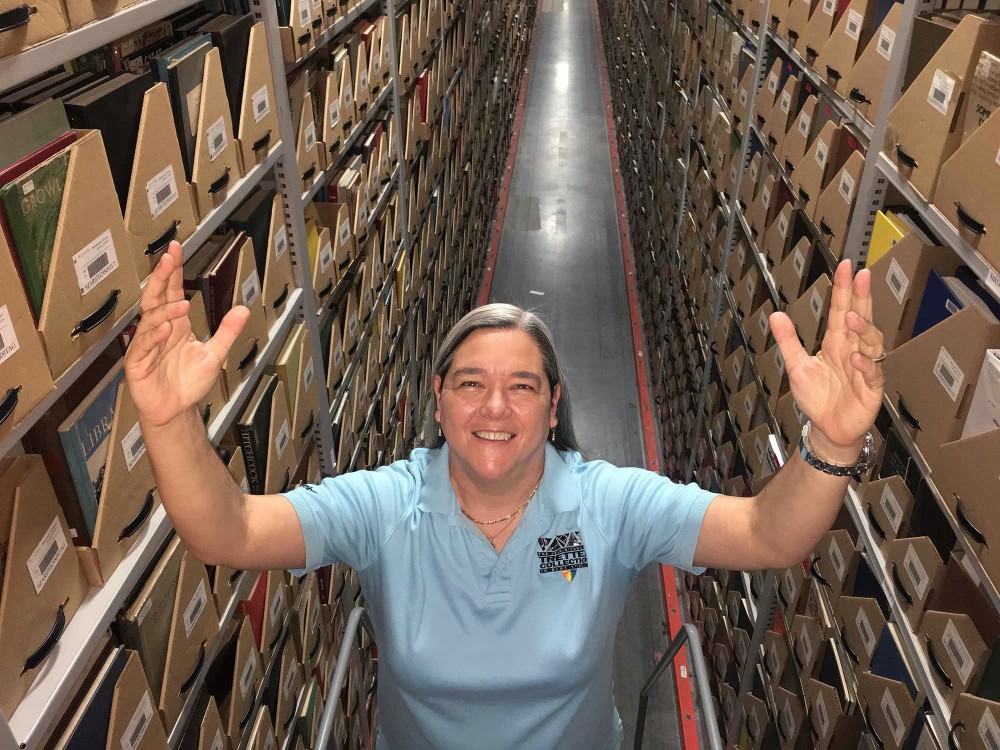The curator of one of the country’s premiere archives documenting LGBT history is retiring.
In April, Lisa Vecoli announced her retirement after six years of expanding and organizing the University of Minnesota’s Jean-Nickolaus Tretter Collection.
The Tretter Collection sits over 80 feet under Andersen Library, consisting of millions of books, magazines, DVDs and other historical LGBT pieces.
Vecoli is the sole manager of the collection, handling everything from transporting boxes to organizing events and projects.
“I’m everything from the master of ceremonies to chief bottle washer,” she said.
Under Vecoli, about one-third of the collection was added. She said she focused on increasing the diversity of the materials beyond the original collection’s focus on white, gay males.
“I’ve worked really hard to … make sure we have a broader sense of history and experience,” she said.
One of her most notable examples of this is the Transgender Oral History Project, a project consisting of hundreds of interviews with transgender people in the Midwest about their personal stories.
“Her impact has been really invaluable,” said Minneapolis Ward 8 City Council member Andrea Jenkins, co-curator of the project.
Vecoli is the second curator after Jean-Nickolaus Tretter, the founder of the collection.
Tretter started as a private collector, eventually curating hundreds of boxes of materials that engulfed his apartment. He later donated them to the University for public use.
When Vecoli took over, she played a large role in organizing the collection and cataloging materials for online use, Tretter said.
“I was really glad that Lisa had the position … She was always considerate of me as being the original curator and founder,” Tretter said.
Vecoli was exposed to the field growing up playing tag in the University of Minnesota’s archives. Her father, Rudolph Vecoli, was director of the Immigration History Research Center.
Rudolph Vecoli worked in the role for 38 years and had a special interest in preserving his Italian heritage. He spent much of his career advocating for the construction of an archives building, Lisa Vecoli said.
“Watching him transform the [IHRC] into an internationally known archive really showed me what was possible,” Lisa Vecoli said.
While she has worked with the collection for six years compared to her father’s 38, Vecoli feels she has accomplished all her goals.
“When I started, I had a list of things I wanted to get done. I’ve worked really hard and I’ve accomplished almost all of them,” Vecoli said.
Rachel Mattson, an archivist from New York, will take over as the collection’s curator in late May. Vecoli hopes Mattson will carry the collection forward.
“We needed someone with a vision for the next step,” Vecoli said.








